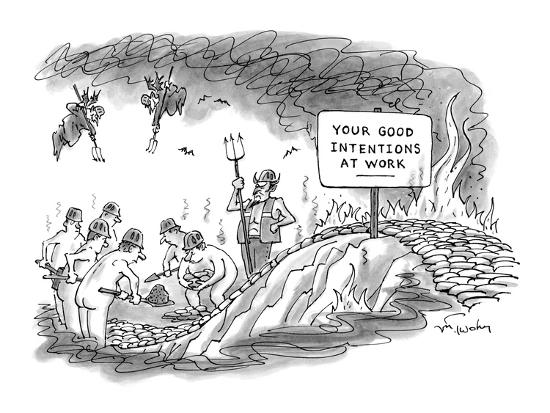LISTEN
Add your quiz & discussion questions, comments, links, et al...
1. What distinguishes neuroexistentialism from previous varieties of existentialism? (1)
2. Neuroexistentialism is defined here as ...? (2)
3. Neuroscience adds what to Darwin's message? (8)
4. What's problematic about the hypothesis that altruism is not a naturally evolved trait in humans? (26)
5. What serious drawback initially faces the view that religion is the watershed of moral values? (27)
6. Just like prairie voles, humans have many ...? (32)
Add your quiz questions, please.
Discussion Questions
- Is there an inherent clash or incompatibility between the scientific and humanistic images of humanity, or is the perception that there is due to contingent assumptions about science or humanity (or both) that we need to reconsider?
- If you're familiar with Wilfred Sellars' "manifest image," how would you characterize its relation to what Caruso and Flanagan call the "humanistic image"?
- Is a geist necessarily the same as a ghost?
- Are we really "100% animal"? Or does the evolution of human culture distinguish the human animal in ways that challenge that characterization?
- Would Darwinian evolution still be controversial, if there had been no history of religious devotion preceding its articulation?
- If you consider yourself a humanist, do you accept the list of humanistic "commitments" on p.6?
- If you embrace a scientific worldview, do you accept the assertions attributed to the scientific image on p.6?
- If altruism is a naturally evolved trait in humans, why are there so many selfish people?
- If you are not religious, have you concealed that from acquaintances so as not to arouse their suspicion that you might be amoral, or worse?
- "Group living often involves norms that keep selfish behavior in check." (34) How would you characterize the present status of such norms in our society? How resilient is the normative structure of civilized behavior at this moment? Are we about to find out?
- COMMENT: "There is not JUSTICE, there is just us."
- Add your DQs please
01:04 What is neuroexistentialism?
04:12 Neuroscience, free will, and existentialism
10:43 The "compatibilist" claim that free will and determinism can co-exist
22:21 To define “free will,” first redefine “agency”
30:22 Why the importance of luck should make us doubt intuitions about free will
39:00 Moral responsibility and the Nazi war criminal thought experiment
50:30 Does Gregg’s personality predispose him to reject retribution?
Robert Wright (Bloggingheads.tv, The Evolution of God, Nonzero, Why Buddhism Is True) and Gregg Caruso (SUNY Corning, greggcaruso.com)
And I am an optimistic free will skeptic skeptic...
Feb 6, MP 3-4
LISTEN
1. Love and what seem to be similar phenomena? (39)
2. Early relationships determine adult relationships, according to what theory? (42)
3. Lewis says we can be attracted to others with whom we do not share what? (47)
4. Some worry that even if neuroscience doesn't really undermine morality, people might be incited to behave immorally if what? (55)
5. The study involving people who'd been hypnotized to report feelings of disgust shows what? (61)
6. Philosophers and psychologists might make more progress if they focused on what? (65)
Add yours please
Discussion Questions
==
The subject of Love came up in discussion the other day, it often being alleged that materialists (physicalists) can't account for it in their ontology... and since atheists are most often physicalists, that's relevant. Also, Valentine's Day is coming.
Anyway, with love in the air I thought I'd share this recent essay from Garrison Keillor. Being a lower-midwesterner by birth I still appreciate his upper-midwestern drollery... and still regret his having been indiscriminately swept up in the #MeToo moment and unfairly lumped with the creepy, criminally- reprehensible Harvey Weinstein. Mr. Keillor is one of the funniest storytelling poet-promoters of his generation. I miss Prairie Home Companion.
Feb 6, MP 3-4
LISTEN
1. Love and what seem to be similar phenomena? (39)
2. Early relationships determine adult relationships, according to what theory? (42)
3. Lewis says we can be attracted to others with whom we do not share what? (47)
4. Some worry that even if neuroscience doesn't really undermine morality, people might be incited to behave immorally if what? (55)
5. The study involving people who'd been hypnotized to report feelings of disgust shows what? (61)
6. Philosophers and psychologists might make more progress if they focused on what? (65)
Add yours please
Discussion Questions
- Are charity and kindness natural? (41)
- Is love rational? Friendship? (43)
- Is Lewis right about the affect of Eros on happiness? (46)
- Do you agree that our capacity for love is in some important way foundational or a prerequisite for our moral nature? Is there any particular reason why a godless person should favor or disfavor this view?
- Should we in any sense immunize our moral beliefs from alteration in the light of the current state of neuroscientific understanding? Is the attribution of personal responsibility just so crucial to social stability and the public interest that we ought to erect a wall between neuroscientific facts (where consensus can be identified) and moral values?
- COMMENT: “While friendship has been by far the chief source of my happiness, acquaintance or general society has always meant little to me, and I cannot quite understand why a man should wish to know more people than he can make real friends of.” C.S. Lewis
- COMMENT: “Walking and talking are two very great pleasures, but it is a mistake to combine them. Our own noise blots out the sounds and silences of the outdoor world; and talking leads almost inevitably to smoking, and then farewell to nature as far as one of our senses is concerned. The only friend to walk with is one who so exactly shares your taste for each mood of the countryside that a glance, a halt, or at most a nudge, is enough to assure us that the pleasure is shared.” ― Surprised by Joy: The Shape of My Early Life
- Add your DQs please
I'm not a C.S. Lewis fan (surprise!), but Shadowlands is a lovely film and a moving love story. If I were Lewis, though, the events it depicts would have sorely tested my faith.
==
The subject of Love came up in discussion the other day, it often being alleged that materialists (physicalists) can't account for it in their ontology... and since atheists are most often physicalists, that's relevant. Also, Valentine's Day is coming.
Anyway, with love in the air I thought I'd share this recent essay from Garrison Keillor. Being a lower-midwesterner by birth I still appreciate his upper-midwestern drollery... and still regret his having been indiscriminately swept up in the #MeToo moment and unfairly lumped with the creepy, criminally- reprehensible Harvey Weinstein. Mr. Keillor is one of the funniest storytelling poet-promoters of his generation. I miss Prairie Home Companion.














